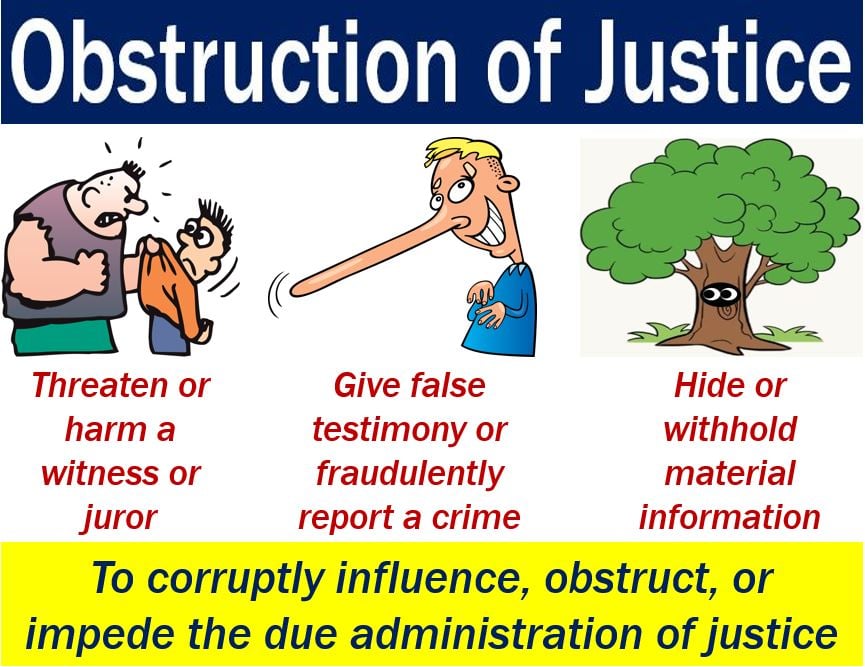Obstruction of Justice refers to illegal actions that undermine a court case. For example, interfering with the administration or process of law, intimidating a juror, giving false testimony, withholding material information, destroying or tampering with evidence, and bribing officials or witnesses. The term also includes intimidating or harming an officer of the law or a witness.
In the United States, obstruction of justice is a federal offense. It covers any attempt by an individual to corruptly ‘impede, obstruct, or influence’ the ‘due administration of justice.’ A ‘federal offense’ is a crime that violates federal (national) laws or regulations, rather than state laws, and is prosecuted in federal courts.
In the United Kingdom, Ireland, and New Zealand, people more commonly use the term ‘perverting the course of justice.’ It includes any act that prevents justice being served on the offender or any other party. In England and Wales, this ‘common law offense’ carries a maximum sentence of life imprisonment.
In Australia, both terms are used – ‘obstruction of justice‘ and ‘perverting the course of justice.’ In India, people say ‘criminal contempt of court.’

Obstruction of justice – specific intent
When somebody has a specific intent to interfere with or obstruct a judicial proceeding, they are probably guilty of obstruction of justice.
To convict somebody of this offense, simply having a specific intent to obstruct the proceeding is not enough. They must also know that a proceeding was pending at the time.
Additionally, there must be a nexus between the culprit’s attempt to obstruct justice and the proceeding.
The culprit (defendant) must also know about this nexus. A nexus is a connection or series of connections linking at least two things.
Obstruction of justice covers many people
The term may include crimes that elected officials, attorney generals, prosecutors, and judges commit.
It also includes fraudulently reporting a crime or providing false information to government agencies.
Once a criminal investigation starts, you face obstruction of justice charges if you threaten or interfere with witnesses. Hiding evidence or having improper conversations with a jury member are also offenses.
